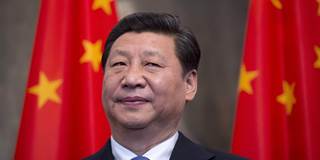Even when the tapestry of modern Chinese history has featured a reformist weft, it was always woven into an authoritarian warp. By the same token, while reform in the seemingly authoritarian Xi era may be a recessive trait, its expression should not be ruled out.
BEIJING – Now that China’s National People’s Congress has voted – 2,958 to two – to abolish presidential term limits, Xi Jinping could rule China indefinitely, rather than completing a tenure of two five-year terms in 2023. To what degree is Xi set to become the all-powerful ruler many observers predict?
China watchers have been debating the character and extent of Xi’s power since last October’s 19th National Congress of the Communist Party of China (CPC). One indicator has been the enshrinement of his ideology, “Xi Jinping Thought on Socialism with Chinese Characteristics for a New Era,” in China’s constitution. With Mao Zedong being the only previous Chinese leader to have his eponymous “Thought” constitutionalized, some now argue that Xi is now the most powerful leader since Mao.
Of course, Deng Xiaoping – who presided over China’s era of “reform and opening up” for two decades, beginning in 1978 – was also lionized, with “Deng Xiaoping Theory.” And “socialism with Chinese characteristics” is Deng’s signature policy. But Xi’s explicit mention of a “New Era” marks a departure from Deng, indicating that the era of reform is over.

BEIJING – Now that China’s National People’s Congress has voted – 2,958 to two – to abolish presidential term limits, Xi Jinping could rule China indefinitely, rather than completing a tenure of two five-year terms in 2023. To what degree is Xi set to become the all-powerful ruler many observers predict?
China watchers have been debating the character and extent of Xi’s power since last October’s 19th National Congress of the Communist Party of China (CPC). One indicator has been the enshrinement of his ideology, “Xi Jinping Thought on Socialism with Chinese Characteristics for a New Era,” in China’s constitution. With Mao Zedong being the only previous Chinese leader to have his eponymous “Thought” constitutionalized, some now argue that Xi is now the most powerful leader since Mao.
Of course, Deng Xiaoping – who presided over China’s era of “reform and opening up” for two decades, beginning in 1978 – was also lionized, with “Deng Xiaoping Theory.” And “socialism with Chinese characteristics” is Deng’s signature policy. But Xi’s explicit mention of a “New Era” marks a departure from Deng, indicating that the era of reform is over.